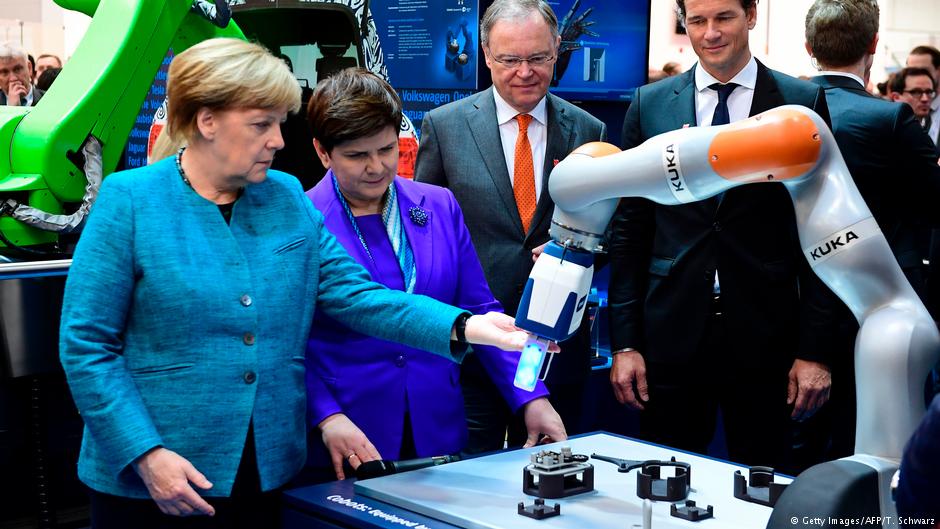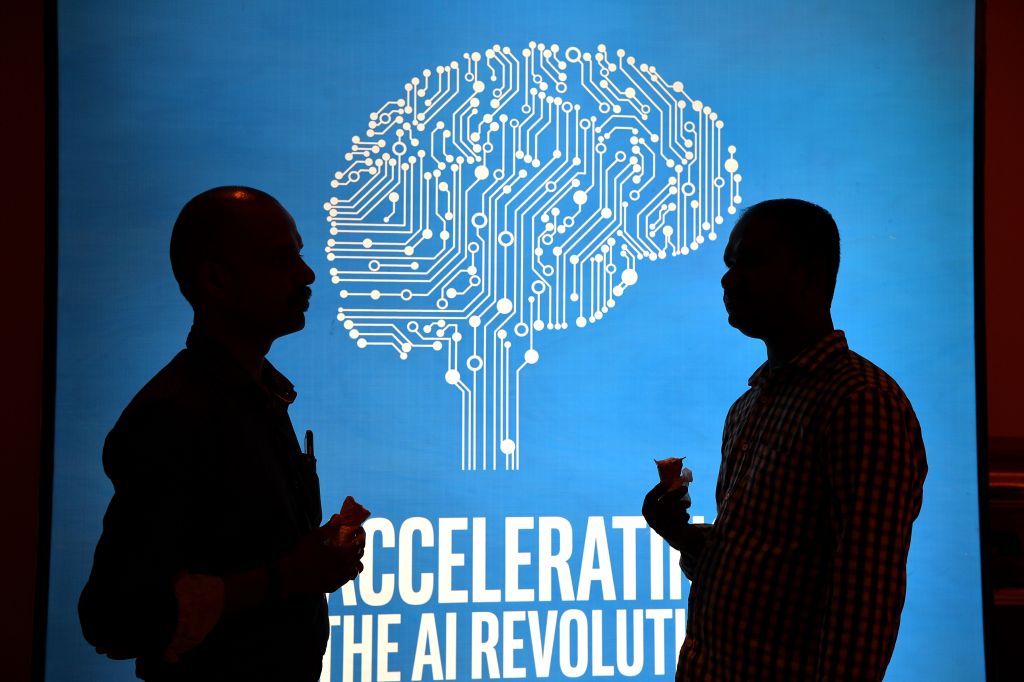Germany’s government is in trouble. The nationalist AfD party united 12.6 percent of the public voters behind them during the 2017 elections, for a simple reason: Chancellor Angela Merkel took the immigration crisis head-on, allowing about 1.4 million refugees to migrate to Germany. This made many people afraid of losing their jobs. The right-wing demagogues jumped on that opportunity and aggravated the discontent of those who have little income, little education, and low support of the government by pointing out that every German euro that goes towards immigrants could have gone to them instead.
People see their financial existence and jobs at peril because of others who have less. But it is not those who have less that get the jobs. It is automation and artificial intelligence (AI) that remove the necessity of human labor.
During the industrial revolution, many people who did physical labor lost their jobs to machines, and the job market pushed workers to more cognitive jobs and offices. Instead of muscles and skills, the one thing that machines couldn’t do – thinking – became in demand. But with the advent of AI, this last niche for employment will be in jeopardy soon.
Human Labor and Artificial Intelligence
Until now, production costs depended on resources, energy, cost of human labor, and the cost of development. We cannot remove energy and resources from this equation, but with AI and artificial general intelligence – machines that have the same cognitive abilities as human beings – human labor can be eliminated.
There is, however, one big problem with this approach: the consumers of the products that are created by these new machines will no longer have jobs or an income that allows them to purchase these products. So, how do we prevent this perfect storm of first making everyone unemployed and then consequently crashing the economy altogether?
Avoiding this future by banning AI technology, for example, would only work if everyone is going along. We know how easy it is for politicians to agree on something as obvious as climate change, right? So, the answer is that instead of preventing that future, we should embrace it.

Ironically, it is the socialist idea of an unconditional basic income that might solve this self-inflicted capitalist nightmare. Distribute resources equally and let the fully automatized free market deal with the question about what needs to be produced. This is exactly what those German nationalist voters demanded in the first place: “We want to make a living, and we fear for competition.”
Let me address another elephant in the room. We keep hearing that competition and a monetary incentive drive innovation, and therefore, we cannot get rid of money or capitalism. I work on artificial general intelligence not because I get a stellar salary, but because I am an idealist. Redistributing wealth will not get rid of idealists, but allows more people to become one. Outsourcing thinking to the machines also involved outsourcing creativity and innovation. You see, I don’t need money to incentivize AI to innovate, I just need AI.
Germany’s AI Strategy
I think the German government fears that the country will be outcompeted by others who have an advantage in AI research, but I don’t think they are aware of the other socio-economic implications that I made above.
Regardless, the government pledged a €3 billion ($3.4 billion) investment in artificial intelligence to employ more professors and professionals in the domain of AI research.

Current job offers seek people who know how to do machine learning (systems that can improve from experience without being explicitly programmed) and AI in general, and because of their competitive salaries attract everyone who knows how to apply these technologies and who doesn’t think that writing grants, publications, and teaching are the most rewarding ways of spending time. As a result, it becomes harder and harder to find professors and postdocs, our academic youth.
University job offers, on the other hand, are often overly focused on finding researchers in deep learning specifically instead of artificial intelligence in general. Current AI technology is dominated by deep learning: a technology that trains complex artificial neural networks (ANNs) to recognize situations and act accordingly. For example, you keep showing the ANN images of cats and dogs and positively or negatively reinforce the network, until it can tell the difference.

ANNs were invented in 1958, but with the extreme computing power we now have and new mathematical and computational tricks, training these ANNs becomes tractable. Remember, the hype we experience from products like Cortana, Google Assistant, and Siri is not coming from great academic advancements in the field, but from the ability to translate it into products due to better computational power. The next breakthrough or paradigm shift will not come from deep learning, but another field within the domain of artificial intelligence research.
I am obviously biased and think that neuro-evolution is the ticket to general purpose AI. Regardless, the best hiring strategy in this situation, given that Germany is now providing sufficient resources, is bet hedging. My advice would be to advance research in as many directions as possible, by hiring in the general field of AI and not just in deep learning. It is like buying lottery tickets: the more different numbers you have, the bigger your chances to win.
At the same time, the industry is translating academic advancements into products and desperately seeks people with deep learning expertise. While these technologies become much more accessible and easier to use, it is also implied that the new professors to be hired need to be able to teach deep learning and data science.
Right now, job ads for academic positions focus too narrowly on deep learning, and it is exactly that category of people who are also sought in the industry – a competition that makes hiring professors almost impossible. Academia should lead the innovation, and thus an investment in academia should be for future technology, as long as these academics can teach the skills needed in the industry.
Germany’s €3 billion investment is a step in the right direction, and 0.1 percent of total GDP is an excellent starting point. Germany, pump as much money into this as possible and hire as diverse as possible! This is not the race to the moon, it is the race for the artificial mind, and this endeavor has an immediate impact on the economy and will change our way of living in the most profound way imaginable. It will make the need to work for money obsolete and requires us to find a sustainable way to redistribute resources.
Disclaimer: The views and opinions expressed here are those of the author and do not necessarily reflect the editorial position of The Globe Post.




















